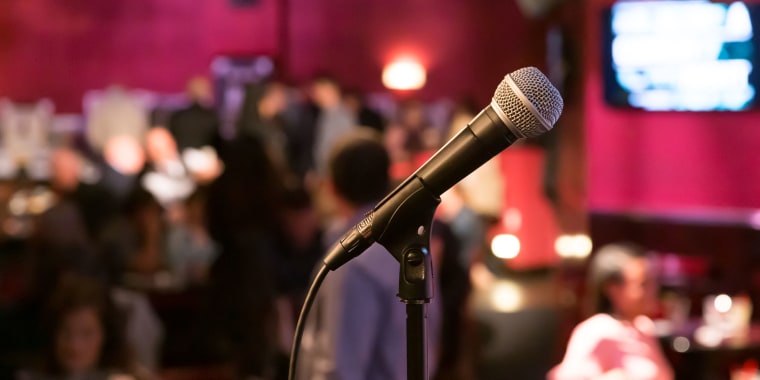Gone is the din of the audience laughing at punchlines. The dimmed lights of the showroom are a memory. The anticipation of an act coming to the stage is on pause.
Stand-up comedy in the era of the coronavirus pandemic is about as funny as, well, the pandemic itself, as comedians deal with multiple issues during the crisis.
“There’s a couple of wars on different fronts,” Bob DiBuono, a headlining comedian who has been doing stand-up for more than 20 years, told TODAY. “No. 1 is comedians are independent contractors. You make a living with each show that we do. It’s a huge financial blow for comics because there’s nowhere for a long time to perform. So, that’s one.
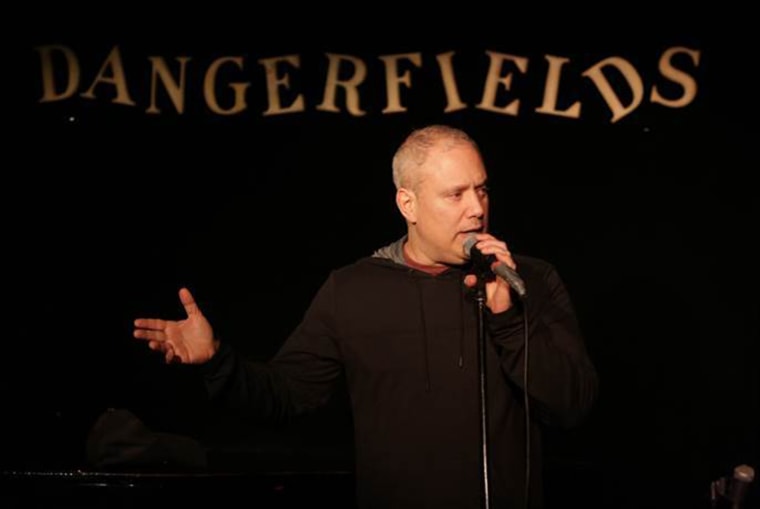
Download the TODAY app for the latest coverage on the coronavirus outbreak.
“And then secondly, artistically and creatively, just like an athlete who has to go out every day and practice a jump shot or get in the batting cage, an artist, especially a comedian, you have to be out there all the time, constantly working out the material.”
DiBuono, who is based in New Jersey, performs at clubs in New York City and tours the country. The virus has wreaked havoc on him, leading him to file for unemployment. “I’ve lost, I would say, $7,000 a month, easily, minimum,” he said.
Comedians have had to adjust on the fly, a different type of improv than what fans see onstage. DiBuono, who has notched multiple TV appearances with his impression of President Trump, has pivoted to shooting personalized Trump videos for birthdays, graduations and anniversaries, as well as making videos for Cameo, although he said none of it can replace the income he’s lost.
Some clubs have moved shows outdoors, some shows are being performed at drive-in theaters and some comics have tried their hand at virtual shows that take place online.
“I don’t find the virtual shows as great as if you were to get a live audience and that’s what’s really hurting, is to hear that laughter and to get that interaction with other people,” Los Angeles-based comedian Tracy Esposito told TODAY.

Esposito, who said she has performed on two or three virtual shows a week since the quarantine began in March, said it’s hard to replicate the magic of a live show where everyone is together.
“We really look for that love with the audience. We need that,” she said.
It’s not only the acts who are hurting, either. Comedy clubs have also felt the squeeze. DiBuono said he knows of one or two clubs that he routinely works that are “shutting their doors.”
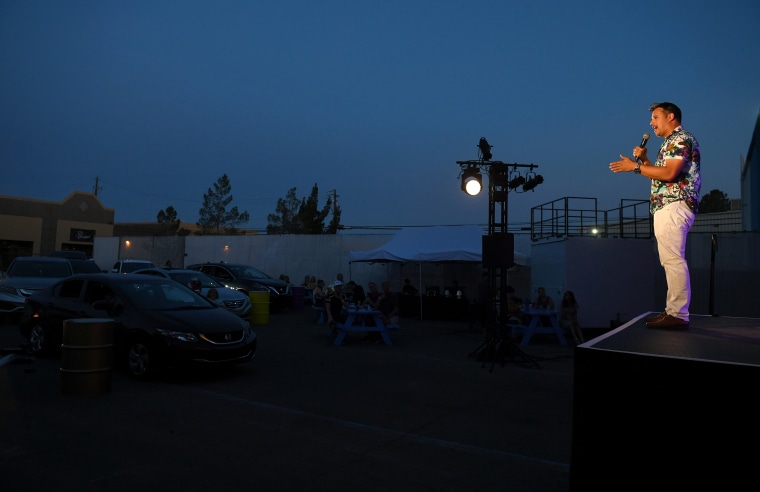
“We’ve gotta be into the millions, between 1 and 2 million (dollars), if it all winds up in the next few months,” Noam Dworman, who owns the Comedy Cellar in New York City, told TODAY about how much money he has lost.
Watch TODAY All Day! Get the best news, information and inspiration from TODAY, all day long.
“The consequences here are worse than anything I’ve ever contemplated, but day to day I kind of just compartmentalize it and try not to think about it because there’s absolutely nothing I can do about it,” he said.
DiBuono went four months before he did his first live show at a garage in Virginia for about 40 people.
“I was nervous about going because I was like, ‘Should I cancel it?’ But they were paying me really good money and that’s the conundrum you’re in as an artist because we need to make a living,” he said.
While the state of stand-up comedy is currently very much in flux, the future is equally cloudy.
“I am very concerned,” Esposito said about performing again. “I really do want to go back, but I want to make sure there’s a vaccine and it’s safe enough to go back when the clubs are opening. I would love to go back, but either I wipe that microphone down or I just have to be extra careful.”
Despite her apprehension, Esposito longs to share the material she’s written during this time because she knows the quarantine has offered experiences everyone can understand. She said stand-up will shine a light on what so many people are enduring.
“I think there’s going to be such a need for it because we’ve been through so much pain that we need to hear how people dealt with the pain,” she said.
“I have so much material from being in quarantine, so much material, the most I’ve ever accumulated,” she added.
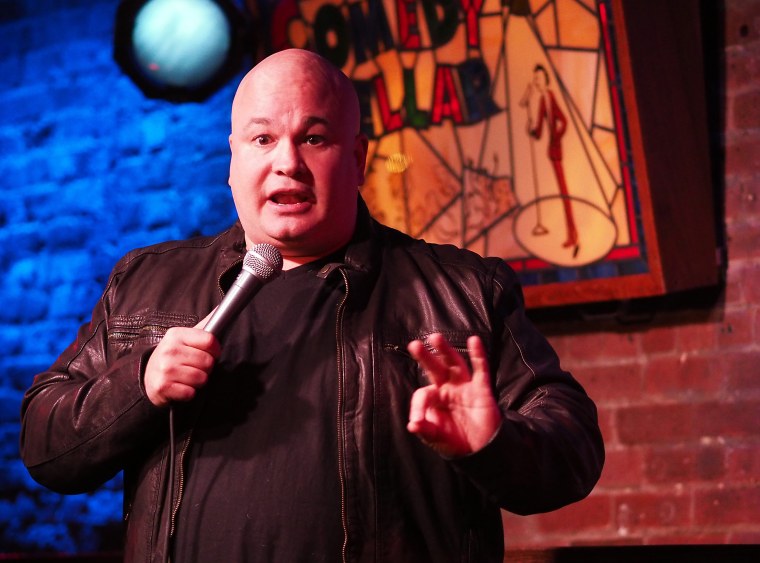
When shows do resume, DiBuono conceded, there may be issues with getting close to fans seeking to shake hands after a gig, but he also cited another problem, namely the fact that comedians may not be as sharp as they normally would be.
“We’re all scared to get back onstage again because we haven’t been up there to do it. There’s a lot of rust,” he said.
Dworman, meanwhile, is already plotting what his club will look like after it reopens. He said there will be plexiglass partitions between tables and a plexiglass shield in front of the stage. He also said every customer will be required to wear a mask, even if the state doesn’t mandate it. Comedians will also have to bring their own microphones and the club will have ultraviolet sanitizer.
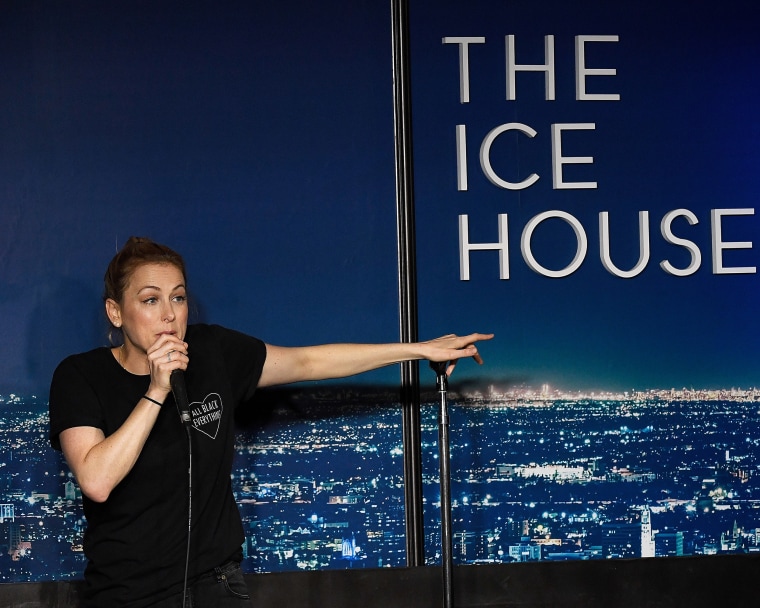
“We’re going to do everything we can, exceeding whatever’s required. We don’t want anybody to get sick,” he said, noting that people will continue to want to leave their homes.
“The desire for humans to go out in groups and socialize is not going anywhere. So long as that exists, all entertainment will come back, I think,” Dworman said.
DiBuono, Esposito and Dworman agree stand-up comedy will return to form, even as stand-up comedy in the era of coronavirus has been compounded in complexity by the discussion about race relations that has emerged in the wake of George Floyd’s death.
“The world is ready to laugh, but I’m not sure what they’re ready to laugh at,” DiBuono said.
Despite that uncertainty, DiBuono knows there is a need for laughter.
“I think people always, in good and bad times, want to experience joy and comedy offers joy and it offers hope,” he added.
Dworman said comedy plays an important role in conversations about the world.
“It’s a way for things sitting under the surface to be said out loud and you can kind of laugh, but it’s always been a way people make points,” he said.
